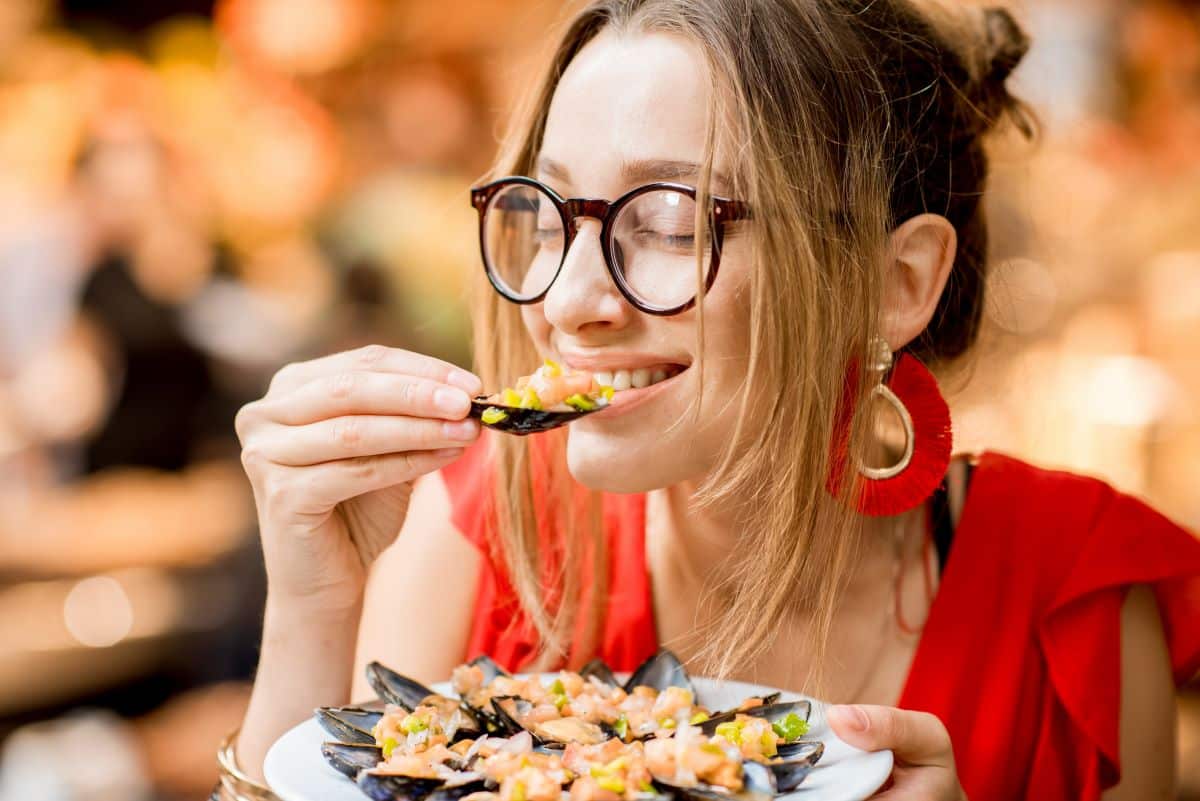Ever noticed how food tastes better on vacation? You’re not imagining it. There’s real science behind this delicious phenomenon. It’s not just about the food, so let’s dive into why your taste buds come alive when you’re away from home.
1. Novelty and Anticipation

The excitement and anticipation of trying new foods stimulate the brain’s reward system more than the routine meals at home. This heightened state of anticipation enhances the overall sensory experience.
2. Relaxed State of Mind

Being on vacation generally means being more relaxed and stress-free. This relaxed state allows you to be more present and mindful when eating, intensifying the flavors you experience.
3. Enhanced Senses

Your senses are keener when you’re in new surroundings. The unfamiliar sights, sounds, and smells can make the taste of food seem more intense and enjoyable.
4. The Role of Environment

The ambiance where you eat can significantly affect how food tastes. A beautiful setting can enhance your dining experience, making the food taste better.
5. Psychological Association

Your brain associates vacation with pleasure and relaxation. This positive mindset can make everything seem better, including your meals.
6. Absence of Routine

Breaking away from your daily routine and typical food choices can make vacation meals more exciting. This lack of routine makes every meal an event, rather than just another part of the day.
7. Local and Fresh Ingredients

Vacation spots often offer food that is fresher and made with local ingredients, which can genuinely enhance the flavor compared to what you might eat at home.
8. Cultural Enrichment

The experience of immersing yourself in a different culture includes dining on local cuisine, which is often prepared in ways that are unfamiliar and delightful to your palate.
9. Increased Appetite

Being more active during vacations—whether exploring cities, hiking, or swimming—can increase your appetite. Food naturally tastes better when you’re hungrier.
10. Social Dining

Eating with friends or loved ones in a relaxed setting without time constraints often leads to longer meals and more enjoyment, enhancing how you perceive your food.
11. Memory Bias

Your memory plays tricks on you. You’re more likely to remember and cherish the positive experiences of vacation, including the meals, which can tint your retrospective views on how food tasted.
12. Experimentation and Openness

On vacation, you’re more likely to try foods outside your usual preferences, which can lead to exciting discoveries and a greater appreciation of diverse flavors.
13. Sensory Adaptation

At home, your taste buds can become accustomed to certain flavors. On vacation, new tastes stand out more because they contrast with what you’re used to.
14. The ‘Halo Effect’

The overall enjoyment of your vacation can create a ‘halo effect,’ where your positive feelings about the trip make everything associated with it, including food, seem better.
15. Professional Preparation

In tourist destinations, particularly those known for their cuisine, dishes are often prepared by expert chefs who know how to showcase their culinary skills to travelers.
16. Expectation Versus Reality

Sometimes, the expectation of trying a renowned dish can enhance your perception of its taste, especially if it’s been highly recommended by locals or travel guides.
17. Weather and Climate

Certain climates can affect how you taste food. For example, warmer weather can make you crave and appreciate lighter, fresher meals more than you would in colder climates.
18. Mindfulness and Savoring

Vacation is one of the few times people truly savor their food, eating slowly and appreciating each bite, which can significantly enhance the taste experience.
Savor the Flavor

Understanding why food tastes better on vacation gives you more reasons to savor every meal on your next trip. Whether it’s the freshness of the ingredients, the joy of discovery, or simply the pleasure of eating without stress, every bite is a bit more delicious when you’re away from home.
The post The Science of Taste: Why Food Tastes Better on Vacation first appeared on Mama Say What?!
Featured Image Credit: Shutterstock / RossHelen.
For transparency, this content was partly developed with AI assistance and carefully curated by an experienced editor to be informative and ensure accuracy.





